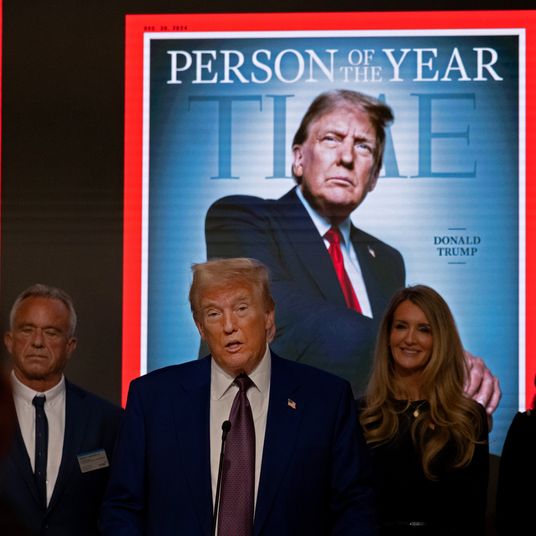
If you picked up the print edition of the New York Times this morning and read the story about an anti-gay congressman widely assumed, based on hearsay and circumstantial evidence, to be gay, you could have no idea it was about Illinois Representative Aaron Schock. One could argue that the story is not about Schock exactly, but about the ethical dilemma of outing a public figure and the media’s responsibility to do so if that person is a huge hypocrite. The Times, by opting only to allude to the man in question, did not pick a side. But if you were to read the same story on the Times website, the blind item could be solved by clicking a single link.
The controversy started in a Facebook post, linked to in the second paragraph of the Times story, by the journalist Itay Hod. “Here’s a hypothetical: what if you know a certain GOP congressman, let’s just say from Illinois, is gay,” Hod wrote earlier this month. “And you know this because one of your friends, a journalist for a reputable network, told you in no uncertain terms that he caught that GOP congressman and his male roommate in the shower … together. […] Are we still not allowed to out him?” At the end of his post, in case it wasn’t clear, Hod linked to “The 7 gayest Aaron Schock Instagram posts of 2013.”
The Times called Hod’s reveal “the world’s most obvious blind item.” The Paper of Record’s own is a close second: Along with linking to Hod’s own cheekily coy Facebook post, it also referred to the Huffington Post’s “Why I Hate ‘Outing’ and How It Lets Aaron Schock Off the Hook.” (Previous Times stories about Schock, not linked, include “Shirtless Schock on Cover of Men’s Health” and “A Congressman’s Abs Garner Yeas.”) Asked about the decision to not name Schock directly, a Times spokesperson said, “As a general rule we do not discuss the editorial process.”
Hod, who is pictured and quoted heavily in the Times story, said he didn’t know Schock wouldn’t be included in the story when he agreed to participate. “It didn’t occur to me that you could do this story without mentioning his name,” he told Daily Intelligencer this morning. Still, he said, “The New York Times covered the story — that’s what’s important to me. Would it be nice to have the name in there? Yes, that would have been preferable. I didn’t mention his name either, but I did make it very clear who it was.”
“If anyone wants to find out, they can find out. It’s a Google click away,” he added. “I’d rather have the piece without his name than not have the piece at all. It continues the conversation.”





























